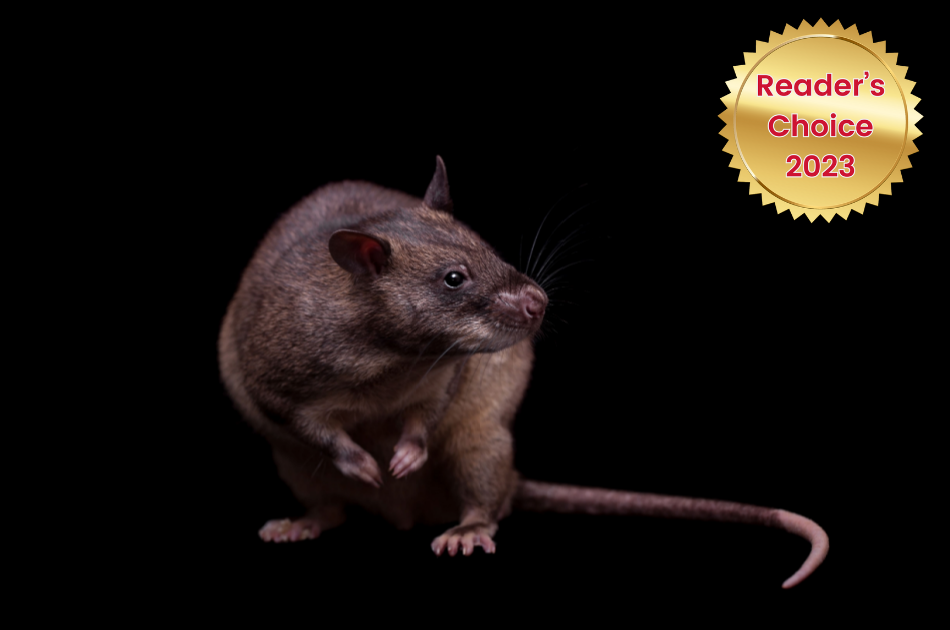DECEMBER 21ST, 2023 UPDATE: This solution is a Reader’s Choice selection of 2023! Thank you for nominating the solutions that left you feeling optimistic this year.
After the terrible earthquake in Turkey and Syria last week—with thousands and thousands of casualties—rescuers have been scrambling to discover survivors in the rubble of collapsed buildings. Search and rescue dogs are assisting at some locations. However, future disasters may receive assistance from an unexpected source: rats that are currently being trained to work in earthquake aftermath.
Rats to the rescue
“They can go deep into the rubble, and penetrate where dogs may not be able to go,” says Sander Verdiesen, an electrical engineer working with Apopo, the nonprofit training the rats. For more than a decade, the organization has used rats to identify land mines in Africa, relying on the rats’ amazing sense of smell. GEA, a Turkish humanitarian organization, approached the group several years ago with the idea of training the rats to help with search and rescue activities.
The rodents wear a backpack with a tiny camera that can broadcast a video feed to a rescuer’s phone outside as they practice for future crises. It also contains a two-way microphone, allowing a rescue team to communicate with a victim. “We can’t teach the rats to talk, so we need some way to communicate with any survivors in the rubble,” explains Verdiesen, who started designing the backpack as a student at Eindhoven University of Technology in the Netherlands. The rats also wear a vest with a microswitch, which they are taught to pull when they find someone. Rescuers can transmit a beeping signal to the rats, instructing them to return to the surface and get a reward such as peanuts or a blend of bananas and avocados.
The backpack technology was tough to develop since GPS typically does not work under a pile of debris. The team employed a variety of technologies with the idea that the video stream might not always be available. “Transmitting video also takes a lot of bandwidth, so the video is a secondary source,” he says. “We know at some point it’s going to drop, and that’s basically how we’ve designed it.”
The device also transmits the position of a victim using a lower-frequency signal that should be able to travel through the rubble. Verdiesen is aiming to make the equipment as tiny and light as possible, but for now, the rats were able to adapt to a hefty first iteration of the concept.
Why rats?
Other projects are developing search and rescue robots, but they are pricey and have difficulty navigating beneath collapsed buildings. The rats, a huge species known as the Gambian pouched rat, developed to burrow underground and can utilize their sense of smell to locate humans rapidly. If a signal is lost, they can make their way back to the surface on their own; a robot, on the other hand, might get stuck.
Apopo’s facility in Tanzania is home to a group of rats who spend 15 minutes each day roaming through a site designed to resemble a collapsing construction. The training sessions are brief in order to keep the rats healthy and happy.
So far, they’ve mastered the ability to locate “victims,” activate a switch to communicate the position, and navigate out of the wreckage on command. The location is becoming more complex with time, with additional obstacles and loud noises. The crew had intended to travel to Turkey to continue training with GEA, but it is not yet prepared to work on the present tragedy.
According to Verdiesen, it is better to wait until they are certain that their strategy is completely prepared. “We don’t want to go in there unprepared and potentially cause even more issues,” he asserts. “But hopefully we’ll be there for the next one.”










